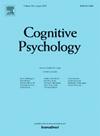建立世界的压缩因果模型
IF 3
2区 心理学
Q1 PSYCHOLOGY
引用次数: 0
摘要
一个给定的因果系统可以用多种方式表示。行为主体如何决定在其因果表征中包含哪些变量,以及在何种粒度水平上包含这些变量?利用贝叶斯网络、信息论和决策论的技术,我们提出了一个正式理论,根据该理论,因果关系表征反映了压缩与信息量之间的权衡,而最佳权衡取决于特定代理人在特定情境下的决策论信息价值。这一理论预测,在其他条件相同的情况下,代理人更喜欢尽可能压缩的因果模型。然而,当压缩与信息损失相关联时,其他条件就不一样了。我们的理论预测,只有当压缩模型所牺牲的信息对代理人的预期决策没有参考价值时,代理人才会青睐压缩模型。然后,我们通过本文报告的六项研究(N=2,364)和补充材料中报告的一项研究(N=182)表明,参与者对因果模型的偏好符合我们理论的预测。我们的理论统一了科学哲学中确定的因果评价的不同维度(比例性和稳定性),并有助于更全面地描述人类认知,根据这一认知,创建压缩(因果)表征的能力起着核心作用。本文章由计算机程序翻译,如有差异,请以英文原文为准。
Building compressed causal models of the world
A given causal system can be represented in a variety of ways. How do agents determine which variables to include in their causal representations, and at what level of granularity? Using techniques from Bayesian networks, information theory, and decision theory, we develop a formal theory according to which causal representations reflect a trade-off between compression and informativeness, where the optimal trade-off depends on the decision-theoretic value of information for a given agent in a given context. This theory predicts that, all else being equal, agents prefer causal models that are as compressed as possible. When compression is associated with information loss, however, all else is not equal, and our theory predicts that agents will favor compressed models only when the information they sacrifice is not informative with respect to the agent’s anticipated decisions. We then show, across six studies reported here (N=2,364) and one study reported in the supplemental materials (N=182), that participants’ preferences over causal models are in keeping with the predictions of our theory. Our theory offers a unification of different dimensions of causal evaluation identified within the philosophy of science (proportionality and stability), and contributes to a more general picture of human cognition according to which the capacity to create compressed (causal) representations plays a central role.
求助全文
通过发布文献求助,成功后即可免费获取论文全文。
去求助
来源期刊

Cognitive Psychology
医学-心理学
CiteScore
5.40
自引率
3.80%
发文量
29
审稿时长
50 days
期刊介绍:
Cognitive Psychology is concerned with advances in the study of attention, memory, language processing, perception, problem solving, and thinking. Cognitive Psychology specializes in extensive articles that have a major impact on cognitive theory and provide new theoretical advances.
Research Areas include:
• Artificial intelligence
• Developmental psychology
• Linguistics
• Neurophysiology
• Social psychology.
 求助内容:
求助内容: 应助结果提醒方式:
应助结果提醒方式:


